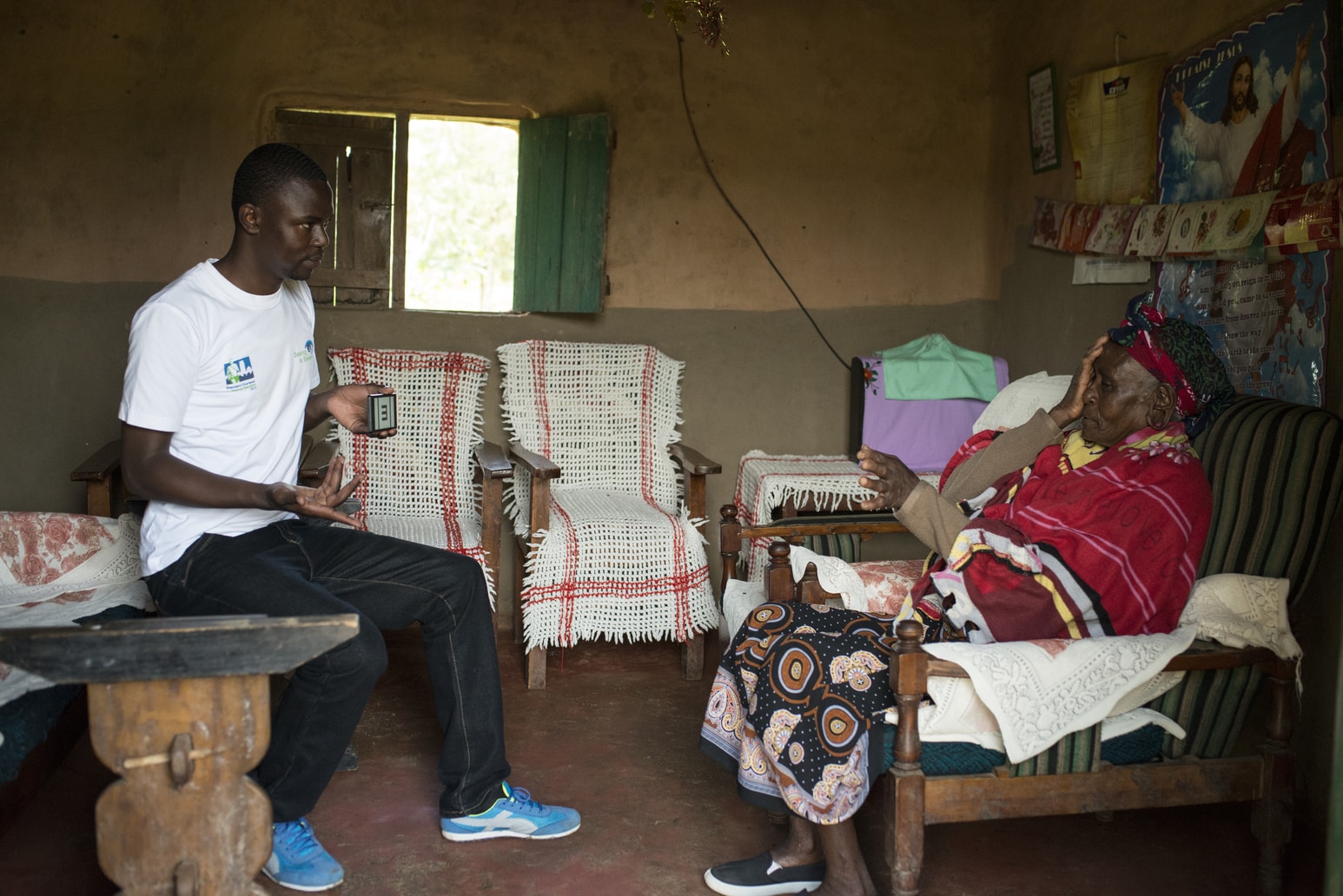Screening app triples attendance at eye clinics

Eye screening using Peek in Kenya
A smartphone-based eye screening and referral system used in the community has been shown to almost triple the number of people with eye problems attending primary care, as well as increasing appropriate uptake of hospital services, compared to the standard approach.
The new findings come from research carried out in Kenya, published in The Lancet Digital Health.
The randomised controlled trial included more than 128,000 people in Trans Nzoia County, Kenya, and was carried out by researchers from the International Centre for Eye Health (ICEH) at the London School of Hygiene & Tropical Medicine, Kitale County Hospital, the University of Nairobi and Peek Vision.
The results are said to demonstrate the potential of using mobile health tools such as the Peek Community Eye Health system (Peek CEH) evaluated in this trial, to improve access to care, target limited eye health resources, and manage more patients effectively at the primary level so that hospitals can focus on more complex cases.
Peek CEH is a smartphone-based referral system which includes vision screening, SMS reminders to those requiring follow-up appointments, and real-time reporting to follow the patient journey to see who is accessing follow-up care and receiving treatment. The system evaluated in this trial also incorporated a scientifically validated decision-guiding app, which enables non-specialist community volunteers to accurately identify and refer patients to eye services.
Study lead author, Dr Hillary Rono, ICEH and Peek researcher and ophthalmologist at Kitale Eye Hospital, said: “My experience as one of very few eye doctors in this rural region of Kenya has shown me that we need more innovative ways to get eyecare services to the many people who require them. Our findings show the great potential of using the Peek Community Eye Health system to help ensure that limited health resources are effectively maximised.
“Our previous research has demonstrated that community volunteers using the decision-guiding app were almost as effective at identifying and referring patients with eye problems as an experienced eye health professional. These new findings now show that using this app to assess people’s vision in their homes as part of the wider Peek CEH leads to many more people accessing the appropriate level of care, which will in many cases transform their lives.”
Study co-author, Dr Andrew Bastawrous, Peek Vision CEO and ICEH researcher, said: “This study is incredibly exciting as it demonstrates real systems change. This change resulted in the right people getting the right services at the right location, while the specialist services gained much needed capacity to focus on more complex conditions despite a big increase in demand overall being generated. As populations grow and age, the number of people being left behind is increasing. We are delighted to see that this is an evidence-based approach to tackle the growing vision crisis.”
Read more here.
Images courtesy of Rolex/Joan Bardeletti and Peek Vision.